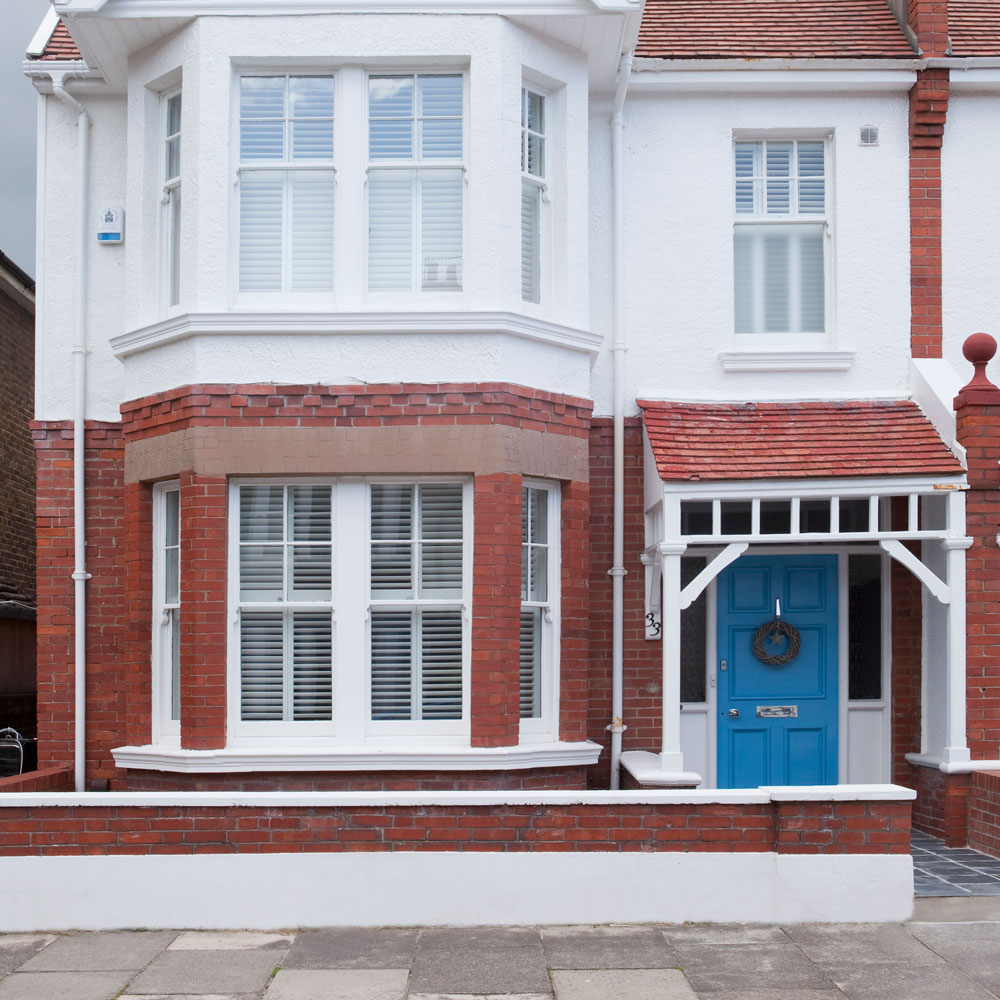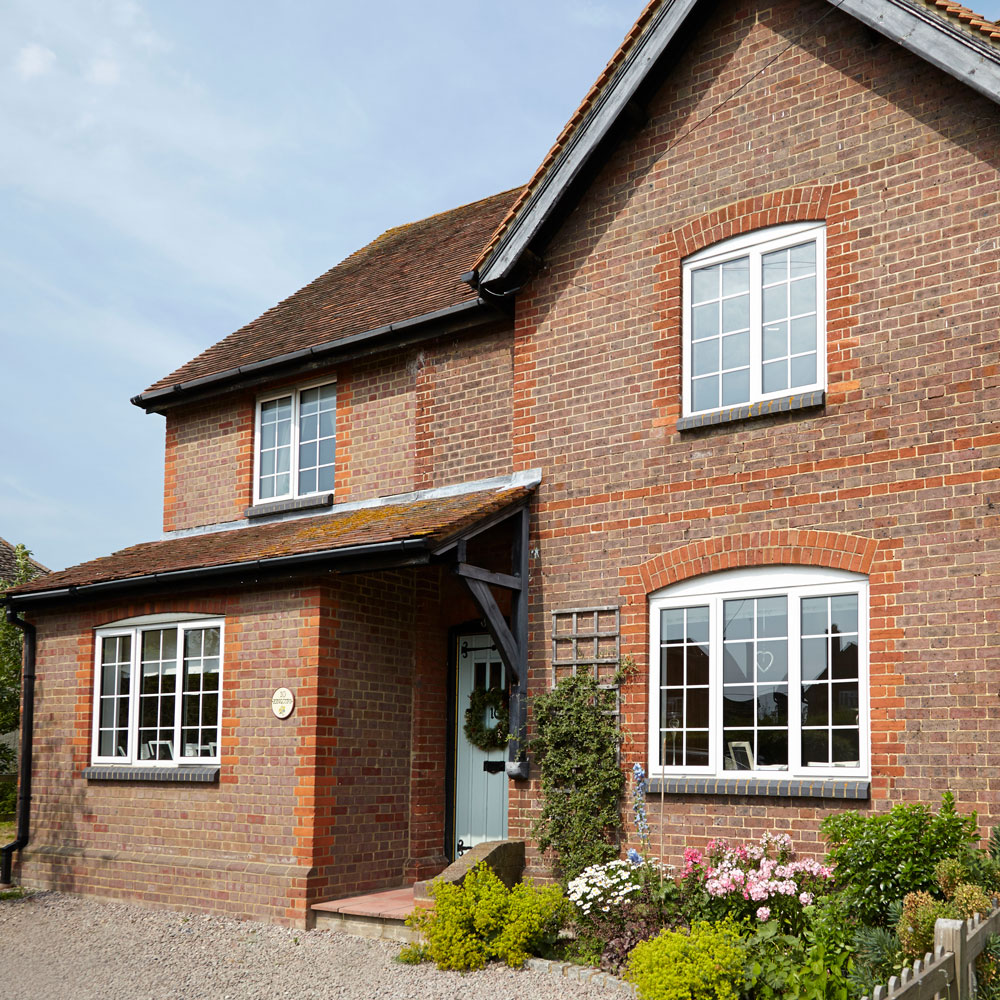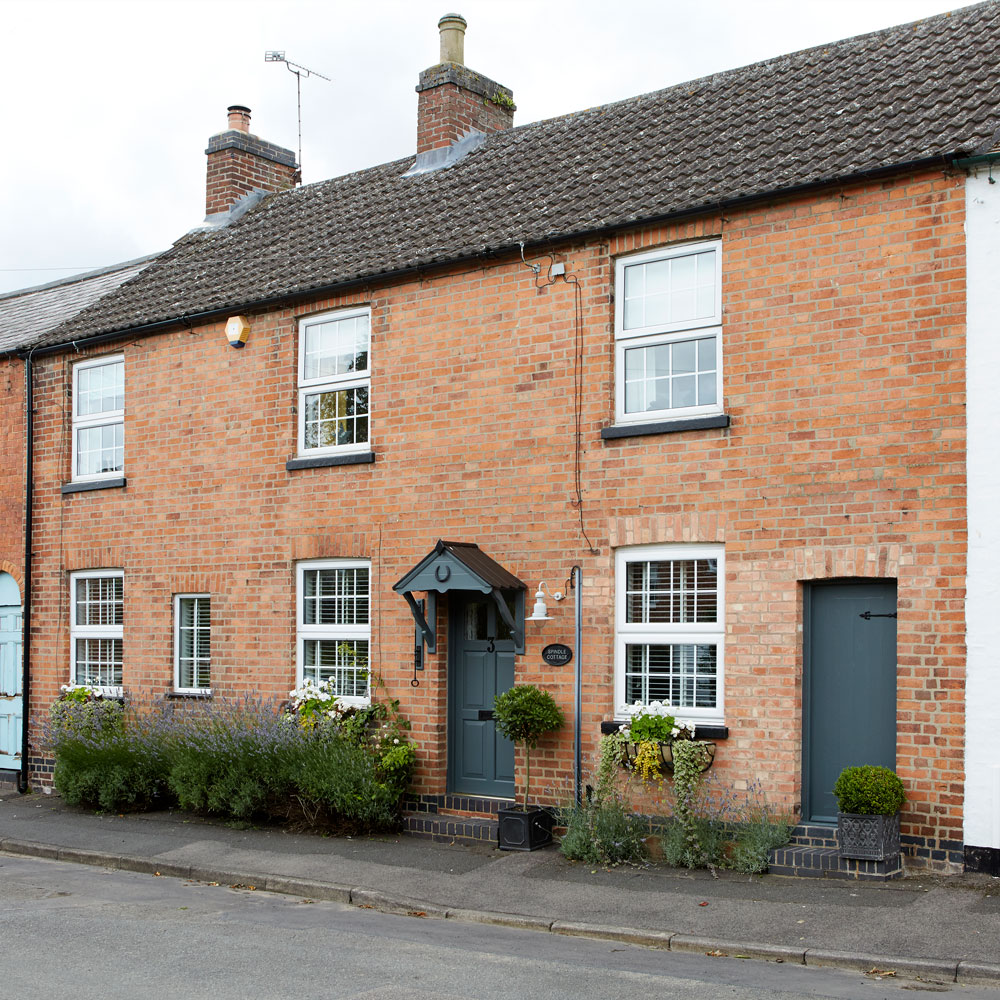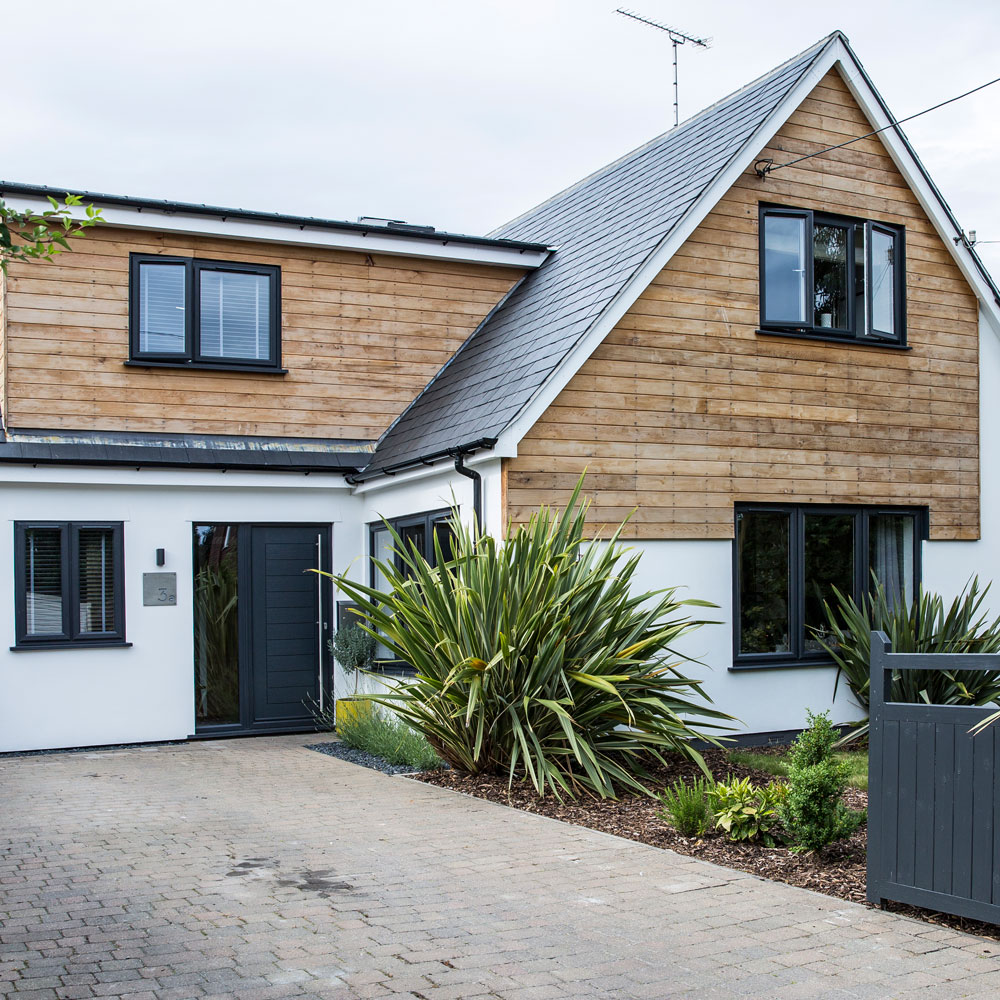Buying a house: the step-by-step process
Follow this in-depth article to find out everything you need to know, from how to save for a mortgage deposit and booking property viewings, to making an offer and moving in

Buying a house can be a complicated process. In a recent survey by regulated property buyers GoodMove only two per cent of respondents thought the process was easy – illustrating just how hard and confusing it can be.
If now is the best time to buy a house for you, Nima Ghasri, Director at GoodMove, believes preparation is essential: ‘When entering the property market, buyers should know exactly what they want and what to expect,’ says Nima.
So, whether you’re a first-time buyer, or you’ve bought a home before and need a reminder of the moving house checklist, we’ve put together property advice for buying a house steps offering clear, helpful advice, to help you on your way to becoming a new homeowner in England.
If you’re buying a house in Scotland, be advised that there will be some differences in the home-buying process in regards to surveys, making an offer and the conveyancing process. See mygov.scot for more details.
Buying a house: the step-by-step process
From finding online estate agents to knowing the price of solicitors fees for buying a house, follow these 15 steps for a smooth buying a house process.

1. Consider how much money you need to buy a property
There are lots of things to consider when buying a house, but first and foremost you need to work out how much you have to spend. You’ll need money for a deposit, funds to pay stamp duty which is a government tax paid on all homes over £125,000 or, if you’re a first-time buyer, properties over £300,000.
Then there’s the valuation fee, house survey, cost of hiring a solicitor and cost of hiring a removal company, as well as on-going maintenance costs once you’ve moved in. ‘I advise all our customers to make a spreadsheet with all of these fees in addition to your expected monthly and yearly ongoing costs, to figure out if you can afford to live there, before putting in an offer,’ says Kate Burns Mortgage Consultant at KB Mortgage Services.
Sign up to our newsletter for style inspiration, real homes, project and garden advice and shopping know-how
2. Save for a deposit
Typically, you’ll need a 10 per cent deposit when buying a home. So, if you’re purchasing a property for £300,000, you’ll need a £30,000 deposit, which can seem a daunting prospect. ‘According to our research, most first-time buyers (53 per cent) have saved for a house deposit by themselves, with a further 34 per cent having help from their parents or other family members to secure a deposit,’ says Nima.
If, like most, you’re unable to borrow money for a deposit, you’ll need to consider saving. ‘One of the biggest mistakes people make when saving for a mortgage deposit is assuming that you have to save a huge amount each month,’ says Pete Mugleston MD and Money Expert at Online Money Advisor. ‘Even saving £50-£100 each month will get you closer to reaching your goal amount than you were before,’ he says.

3. Find the right mortgage
There are various mortgages available. Fixed-rate is popular with buyers who want to know what they’ll be paying each month, as this loan has a fixed rate for its entire term. A flexible mortgage allows the buyer to make overpayments, underpayments and sometimes a break from payments. Interest-only mortgages mean you only pay the interest on the mortgage each month, not repay the loan itself. Things to consider are how long you want to be paying off a mortgage, known as the mortgage term.
Instruct a mortgage advisor/ broker to help find the right mortgage for you. ‘An advisor can provide you with lots of helpful hints and tips that you might not have previously thought about and can scan a full range of mortgage options,’ explains Kate.
4. Research your chosen area
If you’re considering moving to an area you haven’t lived in before, you need to check it out. Book a few nights in an Airbnb or hotel to get a feel for the place and to find out what the local shops, restaurants and café culture is like. Do you have children or plan to in the future? If so, find out where the best schools are. If you will need to commute for work, make sure the transport links available including bus, train and motorway network, are suitable for you and your family’s needs.
It’s a good idea to visit at different times of the day and week, too, to get a true flavour for the area including safety and noise.
5. Register with estate agents
Once you know the area you want to buy in, you need to register with local estate agents. Registering is free and will increase your chances of finding the perfect property. Visit the estate agent in person to get a feel for how they operate, but also so you can build a relationship with them. Let them know your finances, if you’re renting, or in a chain, how much deposit you have and how quickly you could complete.
The more appealing you are as a buyer, the more likely they are to contact you above others. ‘Local agents that perform well in your chosen area will often keep buyers informed of new instructions coming to market, sometimes before they are launched to the general public,’ advises Gemma Caulfield, Residential Branch Manager and Senior Valuer at Bramleys.

6. Apply for a mortgage in principle
A mortgage in principle, often shortened to AIP or called a decision in principle (DIP), is an indication of what the lender (mortgage provider) will loan you based on the details you provide about your income, spending habits and debts. Having one will make you more favourable with the seller and estate agent as it shows that you are a serious buyer and are highly likely to be approved for a mortgage.
‘You can do this yourself online through most lenders. The questions asked tend to be straight forward ones about income and expenditure,’ says Chelsea Kennedy, Specialist Property Finance Advisor at Pure Property Finance. ‘Most will run a soft credit check to ensure they are giving you a fairly accurate decision. A broker can also do this for you – usually at no cost at this stage,’ she says.
7. Visit your potential property
Most online property search websites reveal a huge amount of visual detail on property listing including photography, video walk-throughs and street views, but it’s important to visit a property in the flesh, too. Viewing homes in person will give you a clear picture of whether the house has potential, if the description matches the property and, fundamentally, if it gives you that this is the one feeling. ’I would always advise, where possible, to have a second viewing of the house as people always tend to notice more the second time around,’ says Gemma.
8. Make an offer
It used to be common to offer less than the asking price however, these days (especially with the stamp duty break earlier this year), homes have been selling for the asking price or more. Check on Zoopla to see what other similar homes in the area have sold for to gauge what the property is worth. Once you’re ready to make an offer, call the estate agent, but also put the offer in writing in an email, too, stating that the offer is subject to a survey and that you want the property taken off the market to prevent your offer being gazumped.
Make sure you mention any favourable points about your buying position. What’s more, a personal note on why you love the property can go a long way according to Emma Fildes Founder of Brick Weaver. ‘In a hotly contested market with multiple similar offers, I have seen this swing things time and time again as the seller may gravitate to someone they can identify with,’ she says.
9. Apply for a mortgage
‘Having a mortgage in principle isn’t a promise that you’ll 100 per cent get the mortgage you want,’ says Pete. Once you’ve had an offer on a property accepted, you will still need to formally apply for a mortgage. Either via your own research, or through a broker, you should know what the best mortgage for your needs and circumstances is at this stage, so it’s just a case of applying officially for one which you can do yourself, or your broker will do it for you on your behalf if you’ve appointed one.
The mortgage provider will ask for relevant documentation such as an up-to-date passport and driving license, proof of current address and evidence of income. ‘Your lender will check your paperwork and credit score, as well as conduct a valuation on the property you intend to buy. From there they will either accept or reject your mortgage offer,’ says Brian Murphy, Head of Lending at Mortgage Advice Bureau.
10. Get a property survey
To assess the quality and condition of the home you’re buying, you’ll need a property survey. They are optional, but it’s better to be aware of any potential structural issues and future repair work. You’re then in a position to either pull out, negotiate the purchase price down, or ask the seller to fix any problems. Most surveyors offer three levels of survey: a Condition Report, a Homebuyer’s Report and a Building Survey.
A condition report is the least extensive and covers the property’s condition including any risks, potential legal issues and urgent defects. A Homebuyer’s Report includes all the features of a Conditions Report, plus defects that could affect the property and provides advice on repairs and maintenance. A Build Survey, also known as a full structural survey, provides an in-depth look at the home’s condition. The surveyor tends to be more hands-on, checking the attic and under floorboards, for example.

11. Engage a property solicitor
Conveyancing is the legal process of purchasing a property. This involves carrying out searches, drawing up and checking contracts, dealing with the Land Registry and paying stamp duty. You can use a conveyancer who isn’t necessarily a solicitor but is experienced in property. Or you can instruct a solicitor with experience in property law. David Jabbari, CEO of UK conveyancers, Muve, advises having a conveyancer in place before an offer is made: ‘It means they can immediately start the legal work and cut the transaction time,’ says David. ’In practice, many people select a conveyancer immediately after having an offer accepted on a property, but certainly don’t leave appointing one for more than a few days.’
12. Exchange and complete
The exchange stage is when the buyer and seller’s conveyancer or solicitor swap signed contracts, and the buyer pays the agreed deposit and a completion date is agreed. Completion usually takes place two weeks after exchange, but sometimes this can be sooner and/or even on the same day. On completion day, your solicitor or conveyancer will arrange for your money to be transferred to the seller’s solicitor. Once received, the buyer can then collect the keys – usually from the estate agent – and move into their new home.
13. Arrange home insurance
It’s essential that you have buildings insurance on your new home from the day that you exchange contracts. It’s typically a condition of most mortgages because, from the day that you exchange, you are legally bound to purchase the property. If it were to flood or burn down before completion and you weren’t insured, you wouldn’t be covered.
14. Move in
As soon as you’ve completed, the home is officially yours and you can move in. ‘It’s common for buyers to receive the keys sometime after midday on the completion date. If you’re lucky enough to be handed them immediately, you can begin moving in as soon as possible,’ says Dave Sayce, Founder and Director at Compare My Move. When choosing a completion day, make sure the date chosen suits you and your family’s needs. If you have children, it might be easier to move at a weekend or during the school holidays, for example. Or if you think you’ll need help from family and friends, you’ll need to check their availability first before agreeing to a completion date.
15. Change the locks
Changing the locks as soon as possible once you’ve completed on a house purchase is always a good idea. Even if you trust your seller, you don’t know who may have previously had access to the property and how many sets of spare keys are still in circulation. What’s more, not having the locks changed may invalidate an insurance claim should your home get broken into, especially if an intruder has let themselves in using a key and there aren’t any signs of forced entry.

Sophie Vening is a freelance journalist and editor with more than 16 years’ experience writing about homes and properties. She’s worked for some of the UK’s leading interiors, self-build and property titles including, Grand Designs, Ideal Home, House Beautiful, Build It, The Metro Homes & Property and The Evening Standard Homes & Property.
She enjoys writing about complex issues in an easy-to-understand way.